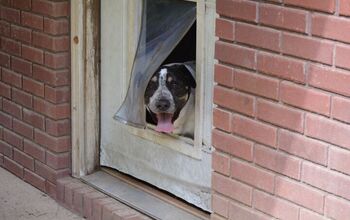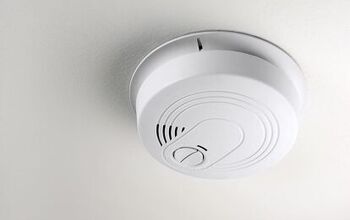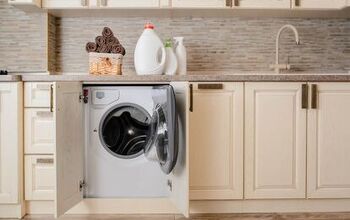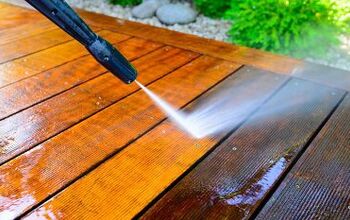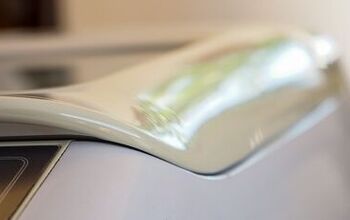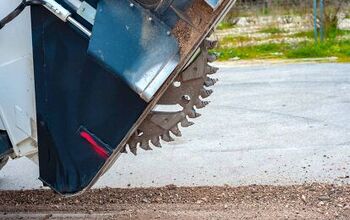Does Having A Pet Decrease House Value?

Selling a house is a stressful process, so it helps to do everything you can do to ensure it goes smoothly. It’s no secret that pets are messy and can even be destructive, and that’s a concern for many homeowners when they sell their houses. Does having a pet decrease house value?
Having a pet can decrease house value if there are noticeable signs of claw damage and strong odors. Make sure to replace damaged carpet and wood flooring if there are scratch marks or else the buyer may ask you to. Treat urine stains with enzyme cleaners or household items like club soda and vinegar to remove the odor before you show your house.
Inspectors often include signs of pet damage in their appraisal reports. This can reduce the price of your house, and that’s the last thing you want. Follow along as we explore how having a pet can decrease house value and see what you can do about it.
Do Pets Affect Home Appraisal?
Pets can affect home appraisal if there are lingering odors. The appearance of claw marks and torn carpets associated with pets can also decrease the value of your house in an appraisal. Of course, this depends on the severity of the odors and damage.
Ideally, you should replace the scratched carpet and do everything you can to remove pet odors before showing your house. The smell of cat urine can linger in fabric and wood for anywhere from several months to several years. This should be your biggest concern when it comes to appraising your home when you try to sell it.
You should also take it as a red flag if you visit a house that’s on the market and it smells like animal urine. This is a turnoff to most buyers, but some may put a contingency in place that the seller must treat the smell and pet damage. The presence of houses with pets around the house can also reduce home value by up to 10%. This is especially true if the houses are quite close and the dogs bark loudly.
Do Cats Or Dogs Cause More Property Damage?
Both dogs and cats can cause plenty of property damage in different ways. For example, dogs are typically more aggressive than cats, and if they’re bigger, they’re more likely to damage your walls and flooring. However, cats that still have their front claws can easily damage your flooring, walls, and furniture.
Cat urine is more destructive than dog urine, and the smell will linger for much longer. It also stains more than dog urine in most cases, and that’s the biggest concern of many homeowners about cats. Dogs and cats are typically destructive due to boredom, anxiety, or because they are playing around and releasing energy.
Separation anxiety is another reason why pets can be quite destructive. Dogs are more prone to accidents than cats, but they’re easier to clean up after and the smell isn’t as potent. Ultimately, having to clean up the damage your pets cause is an unfortunate part of being an animal lover.
How To Sell A House With Pet Damage
You will struggle to sell a house with pet damage unless you take treat odors and repair damages. Let’s look at how to sell a house with pet damage.
1. Treat Odors
It’s time to treat your house for pet odors when you’re ready to put your house on the market and show it to buyers. Start with your carpets and wood flooring as they are most likely to have absorbed urine. Household remedies like club soda and vinegar are a great option, but you may need something stronger.
Enzyme cleaners are stronger and more effective for removing stubborn odors that linger. Brands like Clorox, Nature’s Miracle, and OdoBan make great enzyme cleaners that are good for lingering smells. Remove any old clothes or blankets that smell like your pet’s urine as well before you show your house.
2. Hide Pet Items
When you show your house, it’s important to hide the evidence that pets live there. You don’t need to lie about having pets, but you should at least put the dog toys and litter box away. The sight of a litter box or a bunch of chewed-up toys is a red flag to many prospective buyers.
Simply tuck the litterbox and pet toys away during the showing or bring them to a friend’s house. You can always bring them back into the home after a showing until you sell your house.
3. Bring Your Pets Somewhere Else
Most buyers will be shocked to arrive at a house for a showing and be greeted by your pets. Not only is this distracting, but it may also indicate to them that there have been many accidents in the house. Ask a friend, family member, or kennel if you can drop your pets off for the day.
4. Clean Your Yard
A nice yard is a major selling point for many homeowners. The sight of dog droppings in the grass can ruin the image of an otherwise nice lawn. Take your time to scour your yard and make sure you leave nothing behind.
While your house is on the market, try to keep your dogs on a leash when you take them outside. That way, you can control their path and keep their droppings in the same area so they’re easier to find and pick up.
5. Make Repairs
Repair any damaged flooring or walls that your pets caused. If you don’t, it will surely decrease your house value and serve as a red flag for buyers. Serious buyers will likely ask you to repair the damage at your expense before they buy the house. It’s better to take the problem head-on and make the necessary repairs before negotiating with a buyer.
6. Deep Clean Your House
Even if there is no odor and visible damage, the other signs of pets can serve as a deterrent to buyers. Pet hair is a big red flag that can tip off buyers that you have pets that may have had accidents in the house. Sweep and vacuum your house and don’t forget to check the corners where pet hair often collects.
Summing It Up
Having a pet can only decrease house value if there are odors and visible damage. Treat urine stains and odors with club soda, vinegar, and enzyme cleaners. Repair and replace the torn carpet or damaged wooden flooring before prospective buyers ask you to as a contingency. If there is no odor and visible damage, you won’t have to worry about reducing your asking price when you sell your house in most cases.
Related Guides:

Nick Durante is a professional writer with a primary focus on home improvement. When he is not writing about home improvement or taking on projects around the house, he likes to read and create art. He is always looking towards the newest trends in home improvement.
More by Nick Durante











